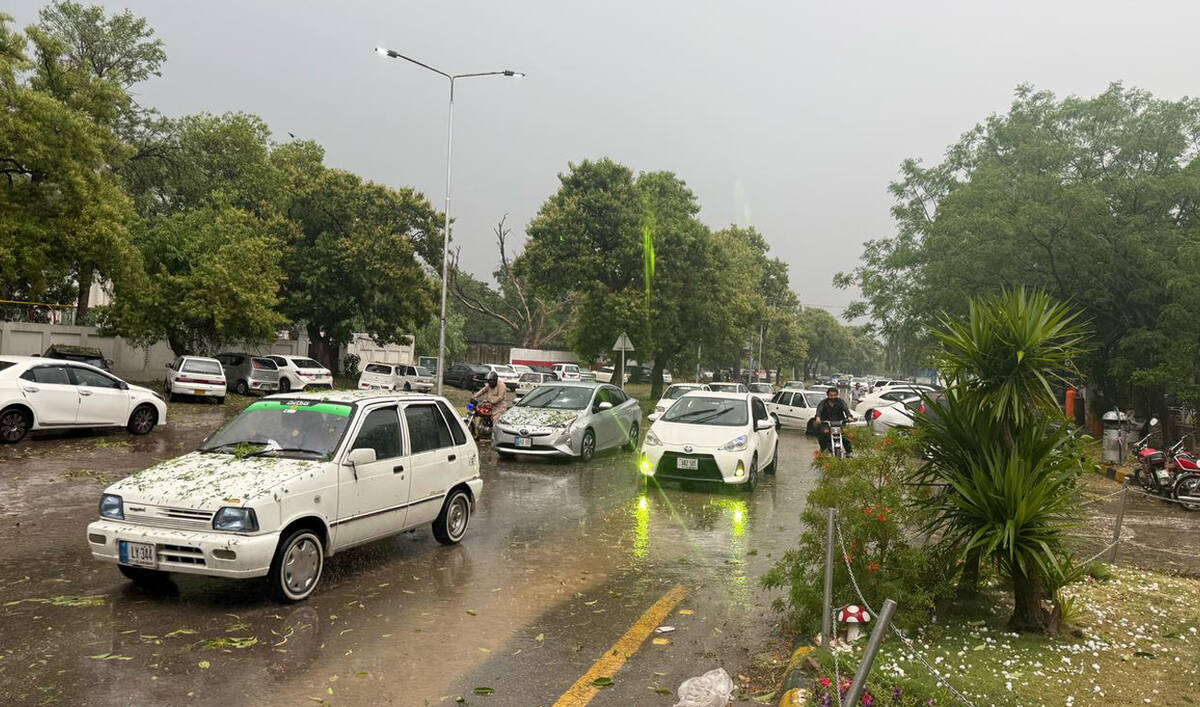ISLAMABAD: Political uncertainty persisted in Pakistan on Friday, as two major political parties of the country continued efforts to finalize a power-sharing mechanism in the wake of last week’s indecisive national polls amid allegations of vote fraud and post-election protests.
The February 8 general elections did not result in a clear mandate for any political faction, though independent candidates backed by former prime minister Imran Khan’s Pakistan Tehreek-e-Insaf (PTI) emerged as the largest group in the National Assembly after securing over 90 seats.
The country’s three-time premier Nawaz Sharif’s Pakistan Muslim League-Nawaz (PML-N) party won from 75 constituencies while former foreign minister Bilawal Bhutto-Zardari’s Pakistan Peoples Party (PPP) occupied the third spot with 54 seats before holding several rounds of negotiations and consultations to form a coalition administration.
Both parties are rivals of Khan’s PTI, which on Friday dubbed the recent polls ‘the biggest voter fraud’ in the country’s history, presenting election documents to national and international media in Islamabad as evidence.
“This election would be remembered for the rigging,” the PTI information secretary Raoof Hasan said in the presence of about 100 national and provincial assembly candidates supported by his party who said they had won their constituencies in the initial results but were later declared to have lost the polls.
He maintained the PTI-backed independents had won 177 national seats but were only given 92.
“We have been deprived of 85 seats fraudulently in this election,” he said.
Pakistan’s national polls last Thursday were marred by a shutdown of cellphone service across the country and unusually delayed results, leading to accusations of election manipulation and drawing concerns from rights groups and foreign governments.
Several political parties and candidates have held protests against the results, and Khan’s PTI has challenged the voting outcome from several constituencies in local courts.
On Friday, a large crowd gathered in Sindh’s Jamshoro district, heeding the Grand Democratic Alliance (GDA)’s call, which claimed its mandate in the province was compromised by the PPP’s sweeping victory.
“We reject these elections and this election commission,” GDA leader Fehmida Mirza said. “We won’t rest until Sindh gets its rights.”
Addressing a large crowd, she demanded fresh elections in the country.
Most GDA leaders argued that while all Pakistani provinces had progressed, Sindh remained stagnant.
Meanwhile, the PPP and the PML-N have been continuing their conversation to determine how to fill out important posts in the new administration and convince smaller factions to join the coalition in return for positions in the federal cabinet.
“The [PML-N and PPP] coordination committees decided to conduct its third consultation session today (Friday) to finalize recommendations after consulting with their respective political leadership,” the state-run Radio Pakistan broadcaster reported earlier in the day.
The PPP announced its support for Shehbaz Sharif, PML-N’s prime ministerial candidate, but has not agreed to join the government, suggesting it might support a minority government from the outside.

















